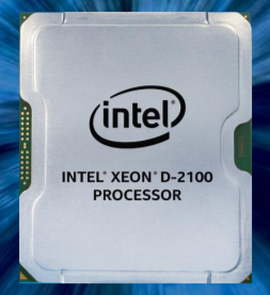Intel has announced that it is working with Spreadtrum on producing a 5G phone and with Lenovo, Dell, HP, and Microsoft on producing 2-in-1 5G PCs to be ready by the second half of 2019.
Intel has announced ahead of Mobile World Congress (MWC) 2018 that it is working with Dell, HP, Lenovo, and Microsoft on bringing 5G connectivity to Windows PCs using the Intel XMM 8000-series commercial 5G modems.
While scant on detail, Intel said it would showcase its first 5G-enabled 2-in-1 concept PC during MWC in Barcelona, which is powered by its 8th-generation Core i5 processors and an early 5G modem, and is expecting to bring 5G-connected PCs o market in the second half of 2019.
"In our [MWC] booth as well, we will have a chipset base first 5G-enabled 2-in-1 concept," Intel GM of 5G Advanced Technologies Rob Topol told media.
Intel also announced a "multi-year collaboration" with Spreadtrum to produce a 5G one platform by the second half of 2019, again using Intel's XMM 8000-series modem alongside Spreadtrum's application processor.
"We're excited about this development, because this is a great opportunity to bring the XMM 8000 series not only as I mentioned earlier as a PC form factor, as well now into mobile and smartphone handset form factors," Topol said.
Intel will additionally use MWC to showcase a PC with 802.11ax Wi-Fi connectivity, along with modem solutions for PCs that support eSIM functionality.
Topol also provided an update on Intel's D-2100 processor, unveiled earlier this month, which he said would enable edge computing for 5G networks.
"This is a big step forward in providing more intelligence at the edge of the network to where more of the communication and traffic can be handled on a local basis," he said.
"We do expect there to be significant growth in edge computing in the 5G era. This helps not only from a latency standpoint, but again in helping offload networks and just being more efficient with communication."
Several partners have already begun shifting to the D-2100 processor, he said.
It utilises 14nm process technology, up to 18 cores and 36 threads, up to 512GB DD4-2666 ECC and up to four channels of memory support, hyper-threading, Intel Virtualization Technology, and Intel QuickAssist Technology with up to 100Gpbs of crypto, decrypt, and encrypt accelerated processing offload.
Compared to its D-1500 chips, Intel said the D-2100 provides up to 29 percent L3 network packet transfer performance improvement; 2.9 times network performance improvement; and 2.8 times storage performance improvement.
It also comes with up to 32 PCI Express 3.0 lanes, up to 3GHz with single-core Intel Turbo Boost Technology 2.0, up to 20 lanes of configurable Flexible High Speed I/O, Intel Mesh Architecture, Rebalanced Intel smart cache hierarchy, Intel AVX-512 acceleration with up to 1 FMA, and Intel Ethernet with up to 4x 10GbE adapters.







No comments:
Post a Comment